Contents of this article
- 1. Commander-in-Chief of the Seventeenth Route Army of the National Revolutionary Army
- 2. The historical prototype of the TV series Heshan
- 3. General Yang Hucheng’s 17th Route Army
- 4. Thoughts after watching the movie "Xi'an Incident"
Commander-in-Chief of the Seventeenth Route Army of the National Revolutionary Army
After the start of the Anti-Japanese War, in late July 1937, Zhao Shoushan's 17th Division of the 38th Army, the 529th Brigade of the 177th Division (Brigadier Commander Xu Quanzhong), and the Teaching Group (Captain Li Zhenxi) went to the front line and participated in Baoding, Niangziguan, Xin Battles in the mouth. Among them, the 17th Division and the teaching regiment fought bloody battles with the enemy for nine days and nights in the Battle of Niangziguan, inflicting heavy casualties on the enemy. The teaching regiment also made heavy sacrifices, with more than 1,800 casualties among the entire regiment. The 529th Brigade defended the front for 14 days in the Battle of Xinkou. The brigade had more than 3,000 people and suffered more than 2,000 casualties. Among them, the 1057th Regiment, headed by Communist Party member Yan Kuiyao, originally had more than 200 Communists. After the Battle of Xinkou, only More than 60 party members were recruited.
In July 1938, the 38th Army was expanded into the 31st Army. In November, the 31st Army was reorganized into the 4th Army, with Sun Weiru as commander-in-chief. Under the jurisdiction of the 38th Army and the 96th Army. Zhao Shoushan, commander of the 38th Army, has jurisdiction over the 17th Division and the 55th Division. Li Xingzhong, commander of the 96th Army, has jurisdiction over the 177th Division and the newly formed 14th Division.
In July 1938, all of Sun Weiru's troops went to the anti-Japanese front line in Zhongtiao Mountain in southern Shanxi. This army persisted in the war of resistance in Zhongtiao Mountain for nearly three years and smashed 11 major raids by the Japanese army. Among them, the "Bloody Battle of Yongji", "June 6th Battle" and "Battle of Wangyuan" were the most tragic and tragic! During the bloody battle in Yongji, Yang Fazhen, deputy of the 102nd regiment of the 17th Division's supplementary regiment, and Wei Hongji, deputy of the teaching regiment, were killed. Zhang Xiwen, commander of the third battalion of the teaching regiment, and all of the battalion were martyred. In the "June 6th Battle", more than 800 soldiers from the 177th Division's new regiment were forced by the Japanese army to the edge of the Yellow River cliff because they ran out of ammunition and food. They shouted slogans and jumped off the cliff collectively. They all died heroically. No one surrendered and was captured. A swan song of life that moves heaven and earth and swallows mountains and rivers. 21,000 people from the 4th Group Army died at the foot of Zhongtiao Mountain and on the banks of the Yellow River, and the Japanese army was never able to cross the Yellow River and enter the northwest.
In August 1940, in response to the Hundred Regiment Campaign launched by the Eighth Route Army, the 4th Army sent troops along the southern section of the Tong-Pu Railway to go deep behind enemy lines to destroy railways and highways. The troops attacked dozens of times in the areas of Anyi, Yuncheng, Wenxi and Xia County, and the enemy retreated to their strongholds and did not dare to move rashly.
In October 1940, the 4th Army left Zhongtiao Mountain and transferred defenses to Henan, guarding the more than 100-mile defense line in Gongxian, Sishui, Xingyang, and Guangwu. On October 2, the Japanese troops on the north bank of the Yellow River forcibly crossed the Yellow River and occupied Zhengzhou. The 4th Group Army fought fiercely with the enemy in the Xingyang and Guangwu areas, and cooperated with friendly forces to regain Zhengzhou. During the three-month Guangwu Battle, the 17th Division served as the main combat mission, with more than 2,280 casualties in the division. Among them, the 102nd Regiment lost one battalion, and some companies only had twenty or thirty men left, but the morale of the troops remained the same.
In mid-April 1944, the Japanese army launched the Henan Campaign. The 4th Group Army fought bravely east of Gong County, and the 530th Regiment held the Hulao Pass stronghold for 7 days and nights. In the Battle of Hulao Pass, more than 2,500 Japanese soldiers were killed and wounded, and the 177th Division suffered casualties of more than 400 officers and soldiers. In addition, in the two battles of Dengbo and Hancheng Town, the Japanese army suffered heavy losses. In May 1945, during the Battle of Western Henan, the 96th Army fought a bloody battle with the Japanese army at Guandaokou. During the battle, the Communist company commander Zhang Guohua commanded the entire company to attack the mountain and was seriously injured. Platoon leader Yu Deshui led the entire platoon of soldiers to fight with the enemy. He rushed to kill and unfortunately died in battle, but eventually repelled the Japanese army and ensured the safety of Guanzhong.
When Japan surrendered, Sun Weiru served as the chief surrender officer of the Wuhan Theater. In 19 days, he was responsible for disarming 210,000 Japanese troops, taking over more than 300 factories and warehouses, and demobilizing more than 90,000 puppet troops from three armies. The 27th Route Army was renamed the 98th Army in September 1937 and was incorporated into the 14th Group Army. In October 1939, the former commander of the 169th Division, Takeshi Takeshi, took over as commander. Afterwards, Feng Qinzai was promoted to deputy commander-in-chief of the 1st Theater Command, and the 98th Army was changed to the East Route Army of the 2nd Theater Command (the commander-in-chief of the East Route Army was Zhu De), which was directly under the jurisdiction and was stationed in Zhongtiao Mountain.
In 1939, the "die-hards" of the Kuomintang set off the first "anti-communist upsurge". Yan Xishan secretly ordered his troops to destroy the Shanxi New Army, and also sent people to "win over" Samurai Min to attack the Shanxi New Army. However, Samurai Min "righteously" "I refused." He expressed his determination to cooperate with the Eighth Route Army, put the interests of the country and the nation first, fight against Japan together, and would never give up until the Japanese troops were driven out of China.
In the second half of 1939, due to the brutal attack of the Japanese army and the "air of surrender and compromise" within the Kuomintang, the Kuomintang troops such as Zhu Huaibing left the difficult Shanxi base area, while the warrior Min resolutely cooperated with the CCP and often promoted it among the officers and soldiers. The principle of "resistance to Japan is above all else and persist in the war of resistance to the end." Under the leadership of Samurai Min, the 98th Army worked closely with the Eighth Route Army to repulse many rampant attacks by the Japanese army on the anti-Japanese base areas, persisted in Shanxi's anti-Japanese war, and made great efforts to stabilize the situation of the national anti-Japanese war and support frontal battlefield operations. contribution.
In May 1941, the Japanese army gathered more than 100,000 people from Linfen, Changzhi, and Jincheng to attack Zhongtiao Mountain. There are about 200,000 Kuomintang troops stationed in Zhongtiao Mountain. Due to lack of adequate preparation, the huge logistics organization could not be evacuated, and the troops could not start the battle. As a result, they suffered serious losses. More than 20,000 Kuomintang people "surrendered", more than 40,000 people were captured, more than 10,000 people died, and the remaining more than 100,000 people were ordered to After retreating across the Yellow River, the 98th Army led by Wu Shimin moved to various places and resolutely fought with the Eighth Route Army to fight against the Japanese in Shanxi. The Japanese army sent people many times to persuade Samurai Min to surrender, but they were always rejected. Once, the Japanese army sent a traitor who knew Samurai Min to persuade him to surrender. Samurai Min was furious: "I am a soldier, and I should die on the anti-Japanese battlefield!" "Then the traitors were detained. In late September, the Japanese army concentrated its main force of more than 30,000 troops and surrounded the 98th Army in Dongyu and Xiyu in Qinshui County. The warriors were not afraid of danger, and went to the front line of Ma Tou Mountain to command the troops to resist tenaciously, fight bloody battles, and organize breakouts many times. In the end, they suffered serious setbacks due to the enemy's tight blockade. During the breakout, when Samurai Min was hit in the jaw by an enemy bullet, he shouted: "Fight to the end, or you will succeed if you don't succeed!" "He later died a heroic death at the age of 49.
After Samurai Min died for his country, the Kuomintang Military Commission appointed Liu Xicheng, a first-term student from Huangpu, to succeed him as commander of the army. Since then, under the transformation of Chiang Kai-shek, the 98th Army has gradually evolved into a direct branch of the Kuomintang Central Army. In 1944, the 98th Army was disbanded and reorganized into the 169th Division. It was transferred to the southwest region and was incorporated into the Expeditionary Force to garrison in western Yunnan. The history of Feng Qinzai's tribe ends here. After the outbreak of the Anti-Japanese War, Wang Jinzai led the 20th Independent Brigade to Zhongtiao Mountain and fought more than 20 battles with the Japanese army. Wang Jinzai took the lead in every battle, went into battle shirtless, and beheaded more than a hundred enemies. Soon, the Independent 20th Brigade was expanded into the new 35th Division and the Independent 20th Brigade. Wang Jinzai was appointed commander of the new 35th Division and Kaifeng Garrison Commander, and was incorporated into Tang Enbo's 20th Army; the 20th Brigade was appointed by General Zhong Song, a direct descendant of Chiang Kai-shek. Brigade commander, he was assigned to the 9th Group Army and participated in the Battle of Songhu. The unit has since become a direct branch of the Kuomintang Central Army.
In the Battle of Xuzhou in the spring of 1938, Wang Jinzai led thousands of soldiers to rush to Caozhou outside Taierzhuang, intercepting the Japanese troops who were chasing Li Zongren, and finally allowed General Li Zongren to escape safely. Wang Jinzai was awarded a specially awarded Grand Medal to commemorate the "January 28" Songhu Anti-Japanese War in 1932 for his meritorious service. The new 35th Division was also reorganized into the 128th Division of the Central Army and became one of the 200 regular divisions of the Kuomintang. Wang Jinzai was appointed lieutenant general and division commander. Subsequently, this unit immediately participated in the unprecedented Wuhan Battle and launched a bloody battle with the Japanese army. The 128th Division suffered heavy losses.
After the Battle of Wuhan, Tang Enbo broke the 128th Division into parts. The 382nd Brigade of the 128th Division, which still had combat effectiveness, was transferred to Henan to reinforce other units under the leadership of deputy division commander and brigade commander Li Junyan. Li Junyan later served as the garrison commander of Luoyang and led the 382 Brigade to defend Luoyang until the fall of Luoyang. The remaining soldiers of the 128th Division, including the lightly and seriously injured soldiers, totaled less than 200. They were ordered to go to Xianning and Puqi, Hubei to rest and replenish themselves, and from then on they were nominally included in the 29th Group Army. From the end of 1938 to 1942, he successively participated in the Battle of Suizao, the 1939 Winter Offensive, the Battle of Zaoyi and the Battle of Southern Henan. During the garrison, the division got along well with the New Fourth Army in Xiangbei, resisted Japanese raids, improved local security, and eliminated bandits who harmed the people. The division gradually expanded to three regular brigades with more than 10,000 people.
In 1943, Wang Jinzai formulated an adventurous plan to regain Hankou. Unexpectedly, one of his subordinates rebelled. He took pictures of the troop garrison on film and smuggled it to the Japanese army. The Japanese and puppet troops gathered a total of 100,000 troops from the five routes to "encircle and suppress" it. . Unfortunately, Wang Jinzai was defeated and captured. Due to various reasons, Wang Jinzai temporarily surrendered to the enemy. The division was reorganized by the Wang Puppet National Government into the temporary 6th Division and the 43rd Division. The division commanders were Jin Yiwu and Wang Jinzai respectively. Shortly after the temporary 43rd Division was established, Wang Jinzai led his troops to carry out guerrilla warfare behind enemy lines and persisted until the victory of the Anti-Japanese War. The temporary 6th Division was incorporated by the National Government in September 1945.
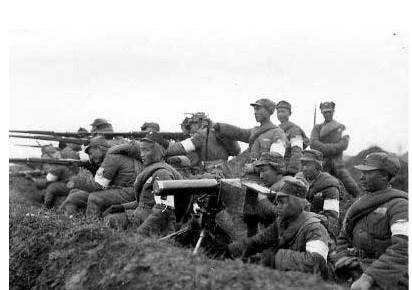
TV series Heshan historical prototype
"Heshan" has received continuous praise since its launch, especially because it has assembled a large number of veteran actors and powerful actors, such as Li Xuejian, You Yong, Zhang Jiayi, Wang Hui, Shi Zhaoqi, etc., and has become a hot topic among netizens.
Zhu Linjun is not familiar with director and male lead Wang Xinjun, and his impression of "Yellow River Love" that he watched in his early years has long been blurred. As for his wife Qin Hailu, I like her better, especially in "The Piano" and "Durian Piao Piao" starring in her. As for "Sister Tao" and "Father and Son", which are highly praised by Zhulinjun, she also has participate. It can be said that Qin Hailu is a powerful actress active in Hong Kong and Mainland China.
The story of "Heshan" begins in Xi'an in the winter of 1936. It begins with Wei Dahe, an inconspicuous low-level officer under Yang Hucheng, who participated in the famous Xi'an Incident. He has an opponent he hates—Gao Xiaoshan. The name of the TV series "Heshan" is probably taken from the names of the two of them, and it also symbolizes the great rivers and mountains of the motherland. Wait, why at this time, the lyrics "Rivers and mountains are only in my dreams" linger in Mr. Zhulin's mind. The motherland has not been there for many years. close”. I may have been poisoned by Huang Zhan.
As for the historical prototype of "Heshan", it is just Zhulinjun's personal opinion. It is only for reference and understanding, and there is no need to recite it (haha, we are not taking a history class).
The most obvious one is Commander Feng played by Shi Zhaoqi, who is clearly General Feng Qinzai.
Feng Qinzai, whose original name was Jinggui, also known as Jingyi, later changed his name to Jingye, was born in Wanrong, Shanxi.
Before the Xi'an Incident, Yang Hucheng's 17th Route Army had two armies, the 38th Army and the 7th Army. General Feng Qinzai was the commander of the 7th Army and the commander of the 42nd Division. After the incident, he refused Yang Hucheng's order to "station in Tongguan to prevent the Central Army from blocking" and made a promise to the Nationalist Government: "Firstly, he will not be a communist, secondly, he will not support Xiao Zhang (Xueliang), and thirdly, he will not fight against the Central Army." This is consistent with In the TV series, Master Feng's attitude was very close. Just like in the TV series, he led his troops to defect to Chiang Kai-shek and betrayed Yang Hucheng not long after. But General Feng Qinzai did not betray the motherland. In the subsequent Anti-Japanese War, he participated in the Battle of Baoding, the Battle of Niangziguan, and the tragic Battle of Zhongtiao Mountain. Later, he served as the commander of the 14th Army Corps in Hebei, and worked with the 10th Army Corps led by our party. The coordinated operation of the Eighth Army was a true version of Li Yunlong and Chu Yunfei's joint resistance against Japan.
General Feng Qinzai is a well-deserved anti-Japanese patriotic general.
Another obvious one is Commander Song played by You Yong, whose identity is very similar to General Sun Weiru.
Mr. Song in the play has helped Wei Dahe many times and can be called the guardian of the protagonist. His prototype, Mr. Zhulin thinks, is General Sun Weiru.
General Sun Weiru has followed Yang Hucheng for many years. During the Xi'an Incident, he was the commander of the 38th Army and the commander of the 17th Division. He was a staunch supporter of Zhang and Yang. This is consistent with Mr. Song in the play. During the Anti-Japanese War, General Sun Weiru participated in the Battle of Zhongtiao Mountain. All the soldiers of the Fourth Group Army he led fought to the death in a difficult situation with no friendly support and extreme shortage of military supplies, and suffered nearly 2/3 casualties (21,000 killed). Still holding on to Zhongtiao Mountain has paid a heavy price.
Attachment: "Manjianghong·Zhongtiao Mountain Anti-Japanese" by Sun Weiru
Immediately in the middle of the road, the wind blows, and the sound of the sound is replaced by the drum. The anger is split, the island barbarian is a clown, and the Huangchi shows off its martial arts. The beautiful country was ravaged, and the descendants of Yan and Huang suffered. Don't hesitate to go to the battlefield to protect the territory.
If the golden pot is missing, I can make up for it with one hand; new and old hatreds can be counted from the beginning and turn the tide as the mainstay. Suppress the arrogant and uphold justice, and eradicate the arrogant and evil spirits. When the time comes, the fortune of the Han Dynasty is booming, and it is noon.
When setting up the identity of Sai Yide, the swordsman in Guanzhong, Zhulin Jun somewhat refers to Yang Hucheng's early history. Yang Hucheng was a swordsman and once organized the Xiaoyi Society and the Mid-Autumn Festival, which killed the rich and helped the poor. As for what kind of sparks Sai Yide and Wei Dahe can create in the future, I am looking forward to it.
As for the prototypes of the two protagonists Wei Dahe and Gao Xiaoshan in the play, some people think they are Zhao Shoushan and Yan Kuiyao. I think it makes sense, but I still need to follow the show further to verify it. What other prototypes do you think are available? Welcome to discuss and add.
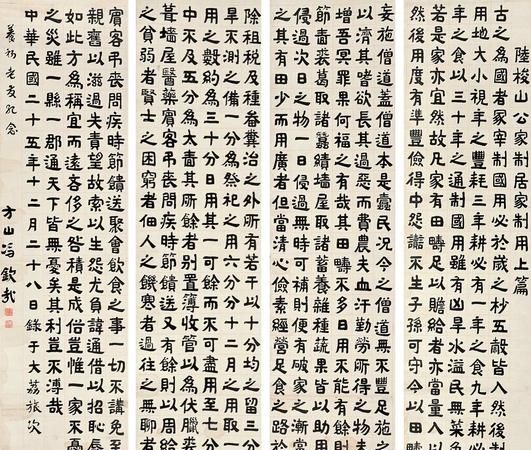
General Yang Hucheng's 17th Route Army
After the September 18th Incident, the Japanese army invaded and occupied the northeastern region of our country. The people in the northeast were displaced and lost their homes on which they depended for survival. The person in power of the country at that time was Chiang Kai-shek. Faced with the brutal aggression and step-by-step pressing of the Japanese army, Chiang Kai-shek adopted a policy of "non-resistance", which caused dissatisfaction among many of his subordinates. Because of this, Zhang Xueliang and Yang Hucheng forced Chiang Kai-shek to resist Japan, which led to the later The "Xi'an Incident" and the subsequent formation of the Anti-Japanese National United Front laid a solid foundation for the victory of the Anti-Japanese War.
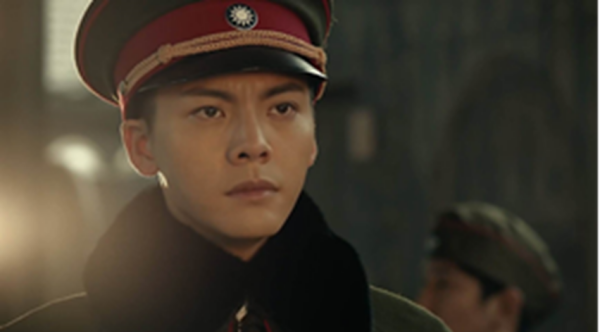
But the fate of these two heroes was not good. Zhang Xueliang was detained when sending Chiang Kai-shek back, and Yang Hucheng, the legendary figure who had helped Chiang Kai-shek defeat Tang Shengzhi under Chiang Kai-shek, was eventually forced to die.
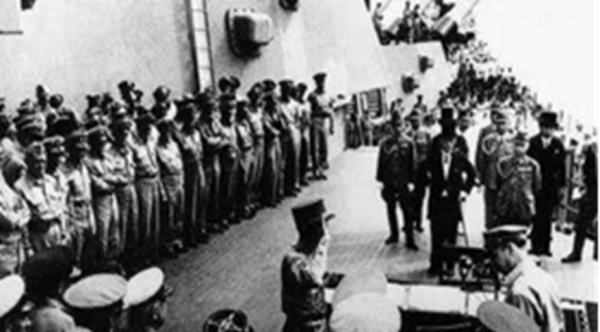
At that time, there were three generals in the 17th Route Army under Yang Hucheng, and one of them was Sun Weiru. He is a person who is very good at using tactics, and he has helped Yang Hucheng achieve many major victories because of his help. In the days that followed, he made a significant contribution to the defeat of the Japanese army. He could be said to be an indispensable anti-Japanese hero, but he died of illness in 1971.
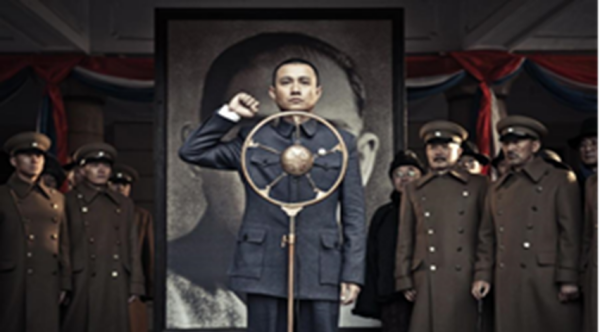
The second place is Feng Qinzai. Feng Qinzai is very valued by Yang Hucheng. Although he and Yang Hucheng sometimes have different opinions on things, he also played a huge role in the victory of the Anti-Japanese War and eventually died of illness.
The last person is Wang Jinzai. He took the lead in more than 20 battles with the Japanese army. He can be regarded as a hero. He also won the Medal of the Blue Sky and White Sun. However, in 1968, due to the turbulent current situation, he was forced to die. It's a pity to say that.
Thoughts after watching the movie "Xi'an Incident"
Plot synopsis of the movie "Xi'an Incident"
The movie "Xi'an Incident" is based on the Xi'an Incident, a major historical event in modern Chinese history that shocked both China and the world. It praises the patriotism of the two generals Zhang Xueliang and Yang Hucheng and the great victory of the Chinese Communist Party's anti-Japanese national united front. Here is a brief introduction to the main content of this video. I hope you like it!

Synopsis
Around 1935, Japanese imperialism intensified its aggression against China. At a time of unprecedented seriousness in the national crisis, Chiang Kai-shek still adhered to the policy of "pacifying the country before resisting foreign aggression." General Zhang Xueliang was forced to suppress the Communists. He suffered repeated defeats on the battlefield in northern Shaanxi and was criticized by Chiang Kai-shek, so he was eager to find a way out. During the Kuomintang's "Five Complete" Congress, he and General Yang Hucheng had contact with our party through progressives Du Chongyuan and Tian Wenhao respectively.
After returning to Xi'an from Nanjing, Zhang Xueliang held talks with Comrade Zhou Enlai of the Communist Party of China in Yan'an through his relationship with Gao Fuyuan, the former commander of the Northeast Army who was released by our army. General Zhang decided to use the overall situation of national survival to persuade Chiang Kai-shek to stop the civil war and unite to resist Japan. At the same time, Yang Hucheng received a personal letter sent to him by Chairman Mao. However, their activities had long been noticed by Li Daquan and Zheng Guangqing, the spy chiefs stationed by Chiang Kai-shek in Xi'an, and they had secretly reported to Nanjing.
In order to counter the rampant activities of the spies, Zhang Xueliang ordered the Kuomintang Shaanxi Provincial Party Headquarters to be raided. This incident prompted Zhang and Yang to join hands, and also shocked Chiang Kai-shek, who was presiding over the resolution of the "Guangdong and Guangxi Mutiny" in Nanjing. In early December 1936, Chiang Kai-shek visited Xi'an in person and stayed at Huaqingchi in Lintong. Zhang Xueliang gave Chiang "bitter advice" many times, but was bitterly rejected. Chiang Kai-shek gave him three days to reply whether he would continue to implement the order to "suppress communism", otherwise he and Yang Hucheng's east and northwest troops would be transferred out of Shaanxi. Zhang and Yang were forced to carry out "military remonstrance" against Chiang on December 12, 1936, and the "Xi'an Incident" broke out, which shocked China and the world.
After the incident, the Communist Party of China was invited by Generals Zhang and Yang and sent a delegation headed by Zhou Enlai to fly to Xi'an. Starting from the overall situation of national survival, Zhou Enlai persuaded Zhang, Yang and Chiang Kai-shek to accept the "Eight Propositions" of resisting Japan and saving the nation; the "Xi'an Incident" was peacefully resolved, and the Anti-Japanese War entered a new stage.
Awards
The 1982 movie "Xi'an Incident" won the second Golden Rooster Award for Best Director: Cheng Yin
The 1982 movie "Xi'an Incident" won the second Golden Rooster Award for Best Supporting Actor: Sun Feihu
The 1982 movie "Xi'an Incident" won the 2nd Golden Rooster Award for Best Makeup: Wang Xizhong and Li Ende
other
"Xi'an Incident" infringed upon General Feng Qinzai's reputational rights: The court held after trial that there was no evidence to prove that the three descriptions of Feng Qinzai in "Xi'an Incident" were historical facts. Among them, the section about Feng Qinzai's bribery of a large amount derogated Feng Qinzai's personality. , infringed on Feng Qinzai’s right to reputation. The court finally ruled that West Film Studio should stop broadcasting the "bribery plot" related to Feng Qinzai in "Xi'an Incident" and required West Film Studio to restore Feng Qinzai's reputation, eliminate the influence in national newspapers and apologize to future generations for the "bribery plot" . h
;The above is all the content about Feng Qinzai, the commander-in-chief of the 17th Route Army of the National Revolutionary Army, and the related content about Feng Qinzai. I hope it can help you.
